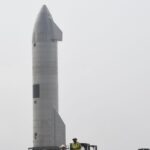
United Parcel Service Inc. is set Tuesday to announce an expansion of its 2019 deal with Alphabet Inc.’s Google Cloud as the logistics company rolls out new data initiatives.
As part of the expansion, UPS will receive increased network, storage and compute capacity. It will continue using Google’s artificial-intelligence and machine-learning tools to analyze its incoming data, which is expected to surge with the introduction of initiatives such as putting radio-frequency identification chips on packages.
The companies declined to comment on the size of the cloud capacity increase or the value of the deal.
“The potential is unlimited,” Juan Perez, chief information and engineering officer at UPS, said about the expansion, adding that UPS is facing a huge increase in incoming data, in part because of the sheer number of packages it delivers. In 2021, it delivered more than 25 million packages a day, up from 24.7 million a day in 2020, a company spokesperson said.
The plan to attach RFID chips to packages would provide more detailed data about package locations, Mr. Perez said. The initiative is in early stages, a company spokesperson said, adding that the chips are now present on packages delivered with UPS’s Premiere level of service and they were used to help deliver Covid-19 vaccine doses.
As the RFID program expands, “We have to get to a place where we can analyze this data much more rapidly,” Mr. Perez said. “That’s why this is a perfect time to do this.”
The RFID data and other package information will be analyzed in the cloud by UPS’s Harmonized Enterprise Analytics Tool, which was developed in collaboration with Google Cloud over the past few years. Using data, HEAT determines the most efficient path for packages to go from their points of origin to local delivery facilities, taking into account circumstances like significant weather and traffic events.
HEAT works in tandem with UPS’s On-Road Integrated Optimization and Navigation system. Orion, an algorithm designed to find the most efficient routes for drivers to get packages from local delivery facilities to recipients, was launched in 2012 and isn’t on the cloud.
Kirsten Kliphouse, president of Google Cloud for North America, said that the timing is right to expand the relationship between Google Cloud and UPS in part due to the increased data points coming out of UPS’s operations and the need for deeper analysis.
“The need for us to come together has just accelerated,” she said. “It’s always been there—but the need has now become even greater, and the capabilities of what we’re able to provide with the technology that we have today enables this to be a real way to produce value.”
The Covid-19 pandemic, supply-chain disruptions and the rise in e-commerce have spurred logistics companies to seek more detailed data on things like locations of trucks and delivery routes, said Jordan Speer, a supply-chain research manager at International Data Corp. “Trying to optimize all of those things is a way to enable much better service and higher profitability,” she said.
The Google deal “is a great conclusion to many things we’ve been doing in digital transformation,” said Mr. Perez, who is leaving UPS this week after 32 years.
He is set to become CIO of software company Salesforce.com Inc. on April 4. UPS is conducting an external search for his successor, Mr. Perez said.
Write to Isabelle Bousquette at [email protected]
Copyright ©2022 Dow Jones & Company, Inc. All Rights Reserved. 87990cbe856818d5eddac44c7b1cdeb8
Appeared in the March 30, 2022, print edition as ‘UPS, Google Cloud Broaden Supply-Chain Analytics Work.’








